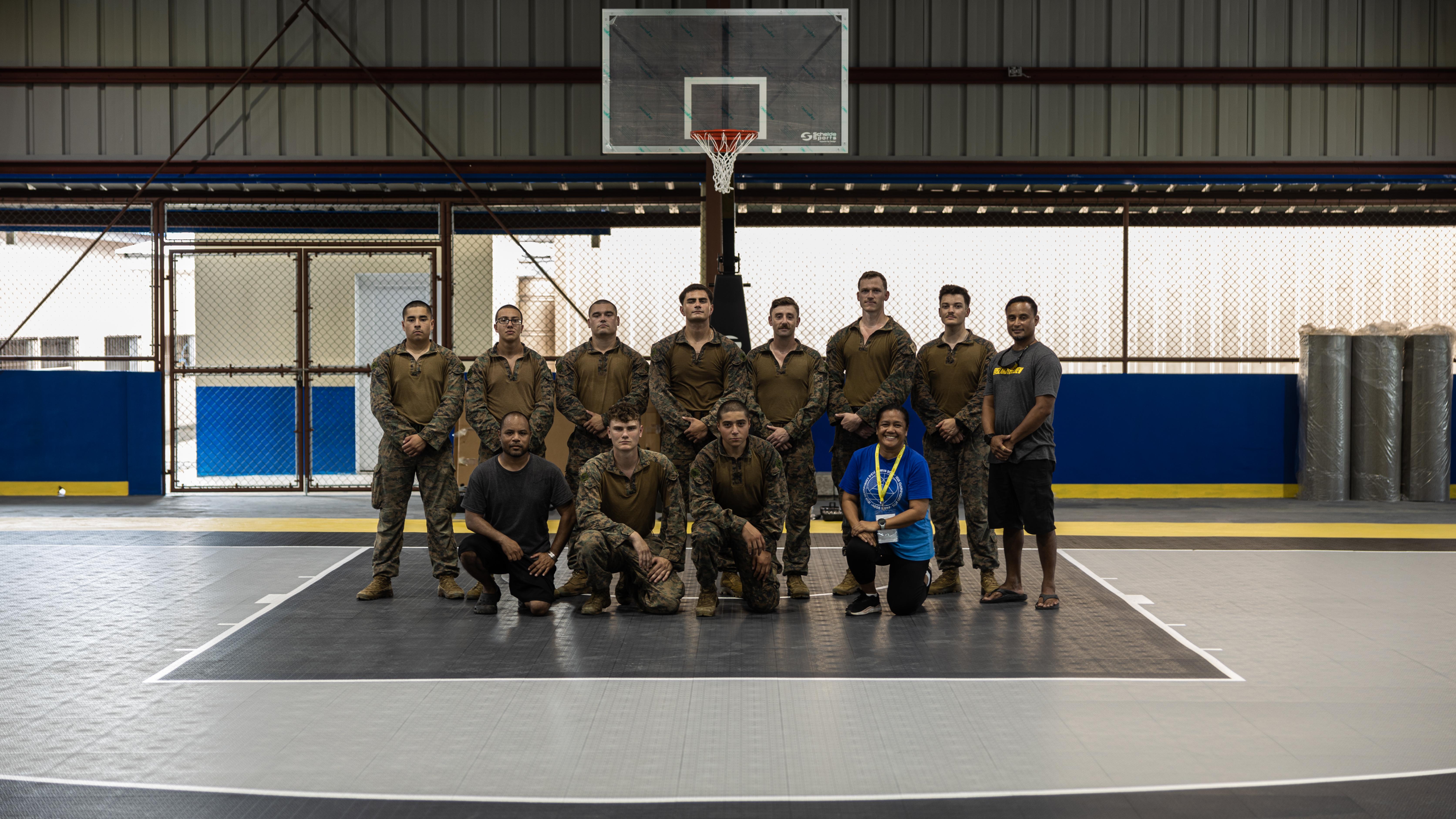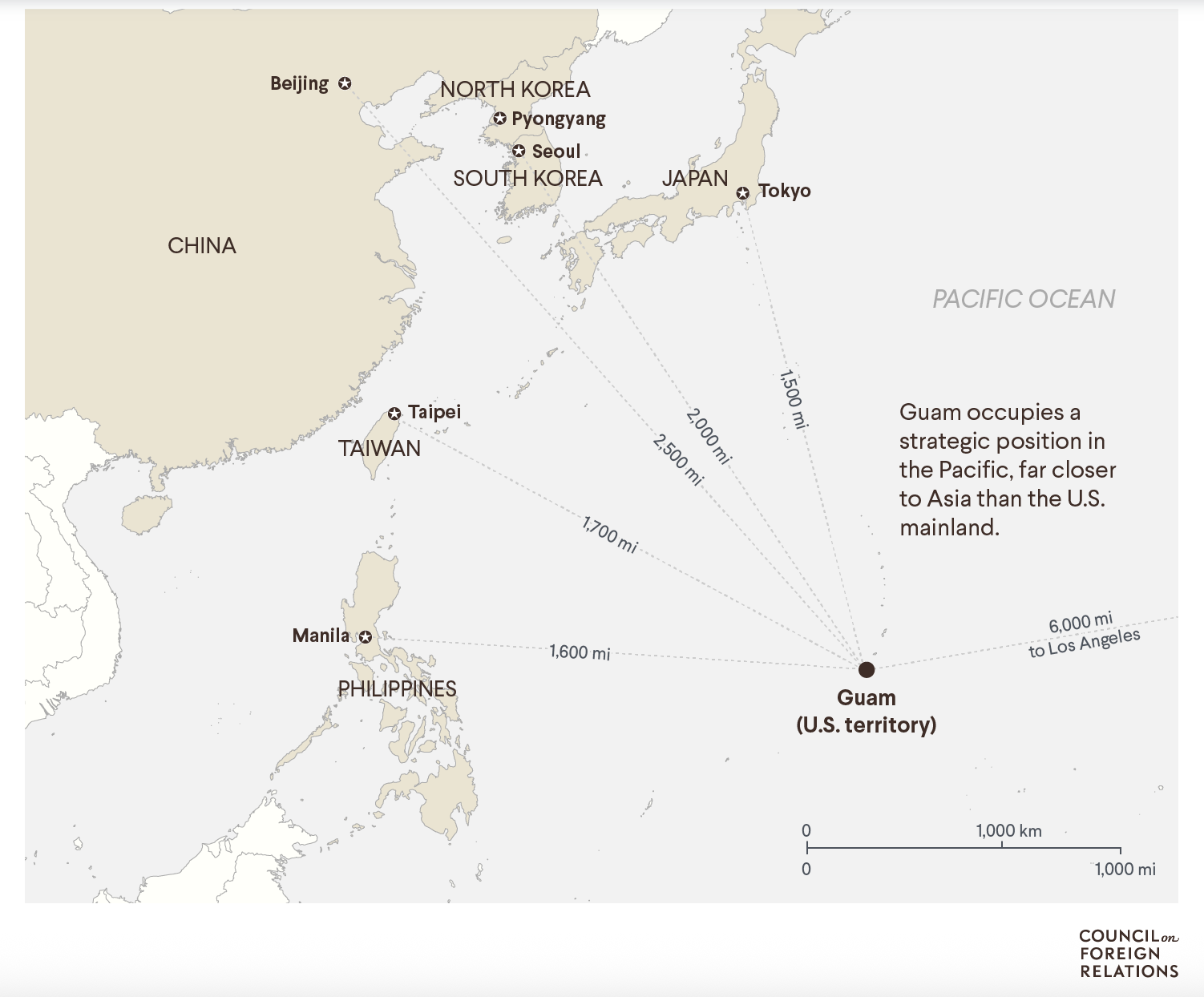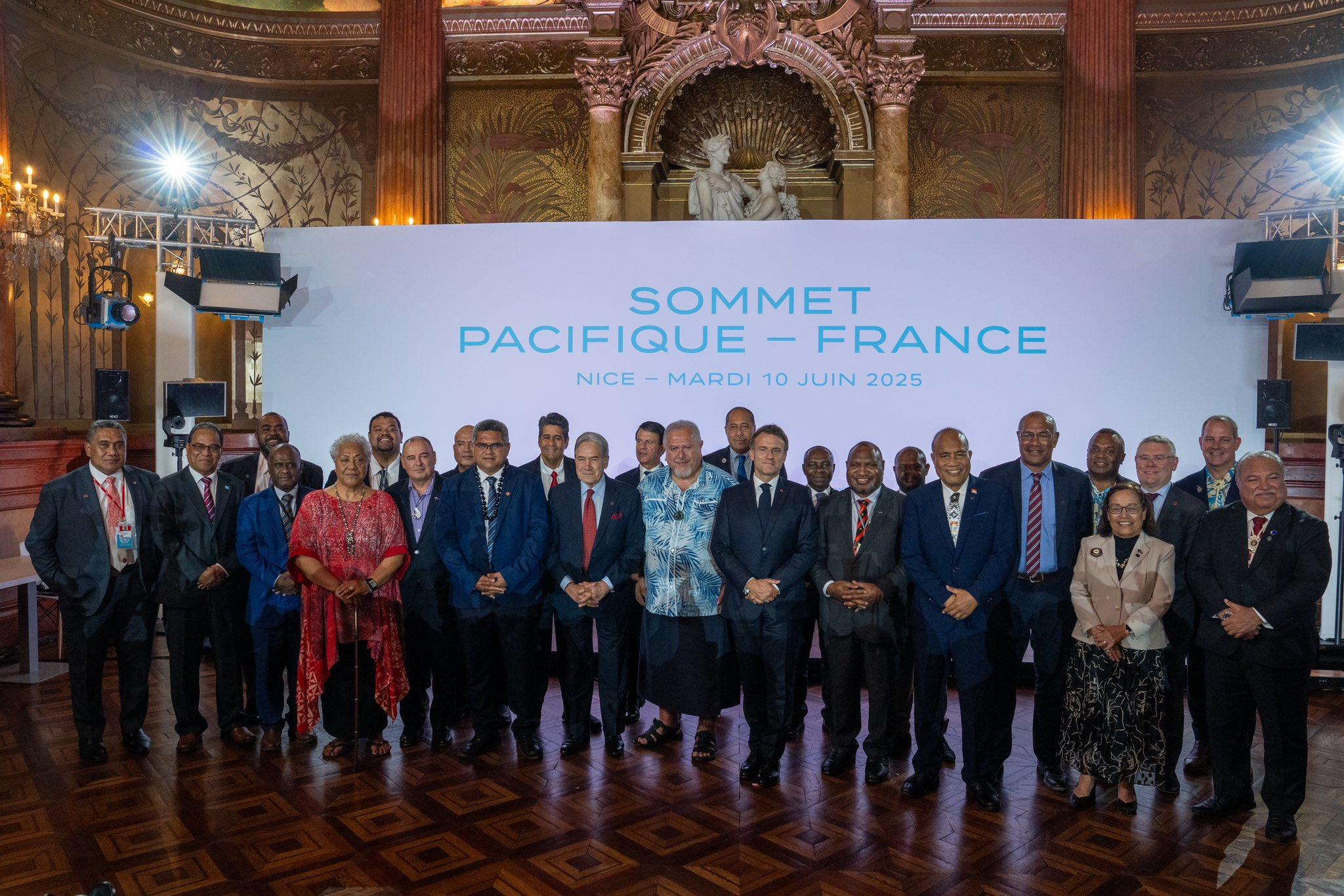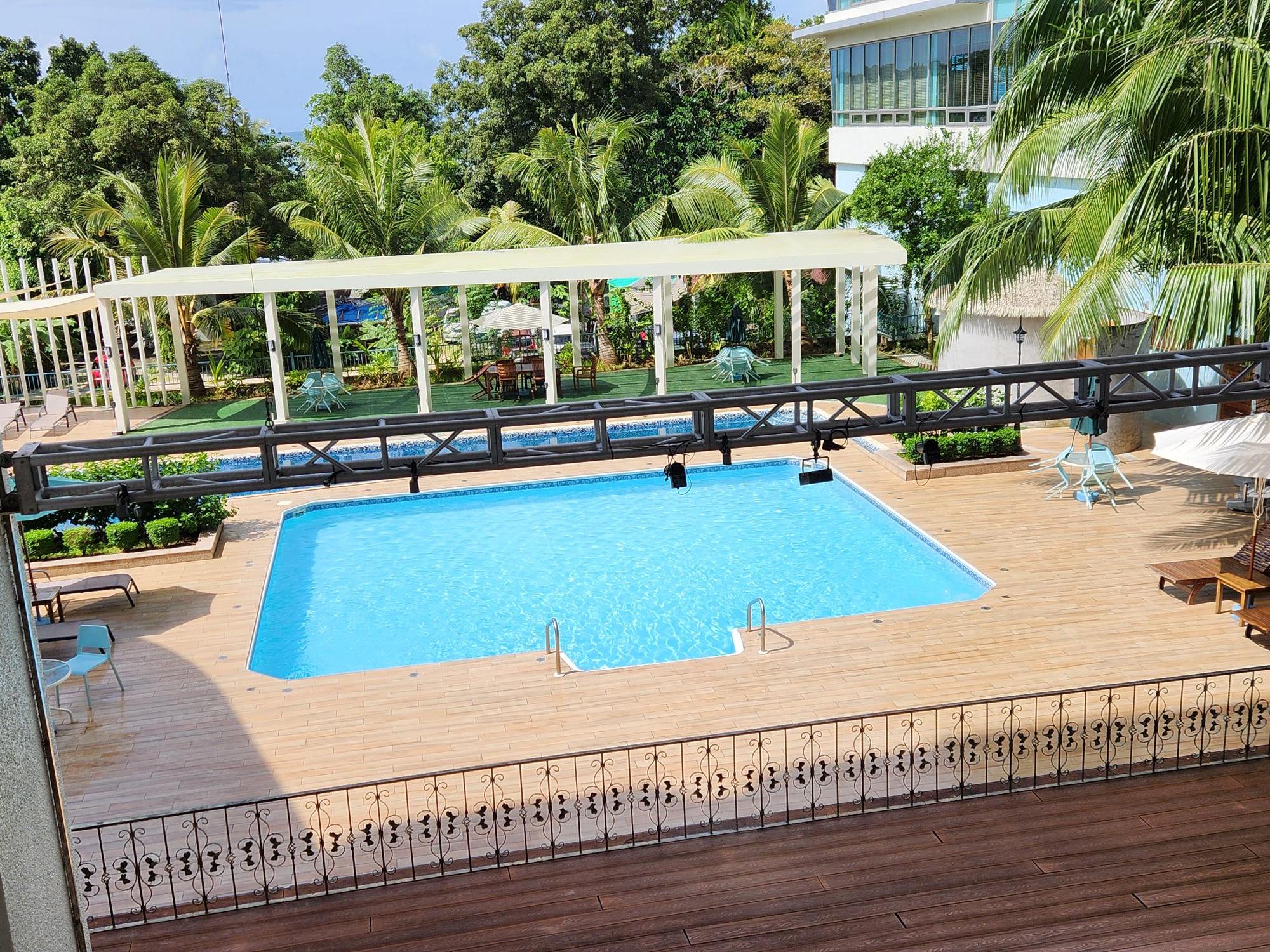BY MARK RABAGO
Saipan Correspondent
TINIAN—During the public meetings on the U.S. military's Revised Draft Environmental Impact Statement, Tinian Mayor Edwin P. Aldan made four key requests to address residents' concerns about planned military activities on the island.
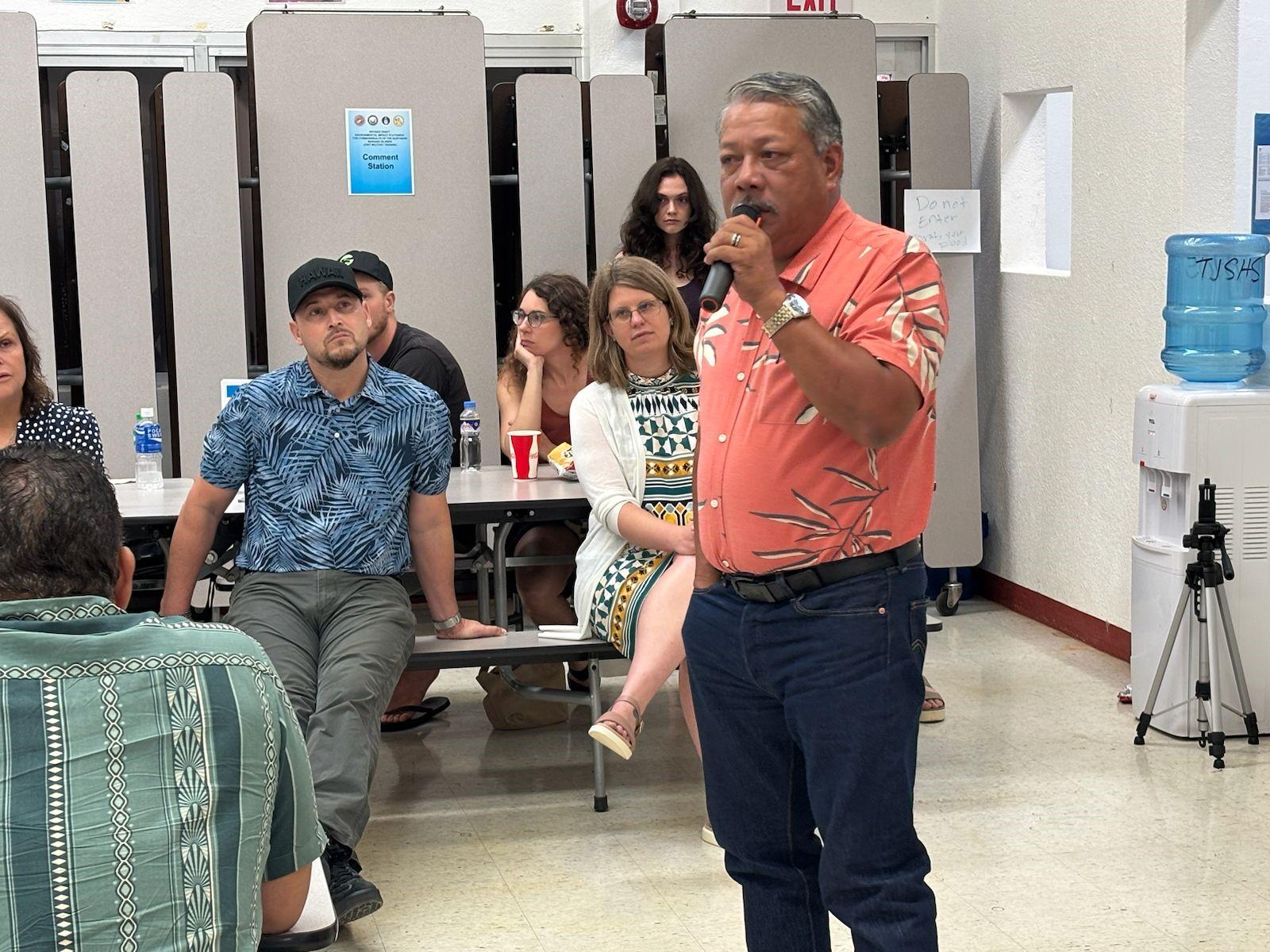
Speaking to a packed room at the Tinian Junior/Senior High School Cafeteria last week, Aldan laid out what he described as the community’s “baseline concerns” with the ongoing U.S. Indo-Pacific military buildup:
-
“Don’t mess around with our environment.” Aldan stressed that the NMI’s fragile ecosystems — already facing threats from climate change — must not suffer further damage from military construction, exercises, or waste. He called for comprehensive environmental safeguards and honest, community-inclusive monitoring of impacts to land and sea.
-
“Be truthful.” The former congressman demanded transparency and honesty from the U.S. military and federal agencies, noting that communities across the NMI have grown frustrated with what they see as vague promises or contradictory information about future plans. “We want real facts, not platitudes,” Aldan said.
-
“Hire our people.” With record unemployment and slow economic recovery from the COVID-19 pandemic, Aldan insisted that military contractors and agencies prioritize local hires. He highlighted the island’s skilled workforce, which he argued could fill positions in construction, maintenance, logistics, and support services if given fair opportunity.
“Give our people opportunity to do business with you folks.” Beyond jobs, Aldan said, NMI-based companies deserve access to contracts for goods and services connected to military operations. He pressed military representatives to ensure local small businesses aren’t sidelined by larger mainland firms who often dominate Department of Defense procurement.
Aside from Tinian, public meetings were also held on Saipan and Rota last week with noise pollution from military exercises emerged as one of the most pressing worries among community members.
Several residents highlighting how aircraft operations and live-fire activities could affect not just quality of life but also traditional practices, like ranching and farming, central to Tinian's economy and culture.
Environmental concerns also dominated the discussions, with residents expressing fears about potential harm to fragile ecosystems and cultural sites if large-scale military training moves forward. Calls for more time to review the extensive RDEIS were repeated throughout the meetings, as many said the current 75-day comment period is not enough for thorough community input on a document totaling thousands of pages.
Community engagement itself proved challenging with protestors from Prutehi Guåhan and Marianas for Palastine pointing out the lack of a working microphone to pass around during the meetings, making it difficult for participants in the packed Tinian Junior/Senior High School auditorium to hear questions and comments.
Wrapping up the session, Marine Corps Forces Pacific executive director Mark Hashimoto emphasized that the military's environmental review process has progressed significantly since the last EIS a decade ago. He said the RDEIS now reflects more community input, stronger environmental safeguards, and greater transparency compared to earlier proposals.
Public comments on the RDEIS remain open until Aug. 20, and written submissions can be made online at www.CNMIJointMilitaryTrainingEIS.com, or by email to [email protected]. mbj















